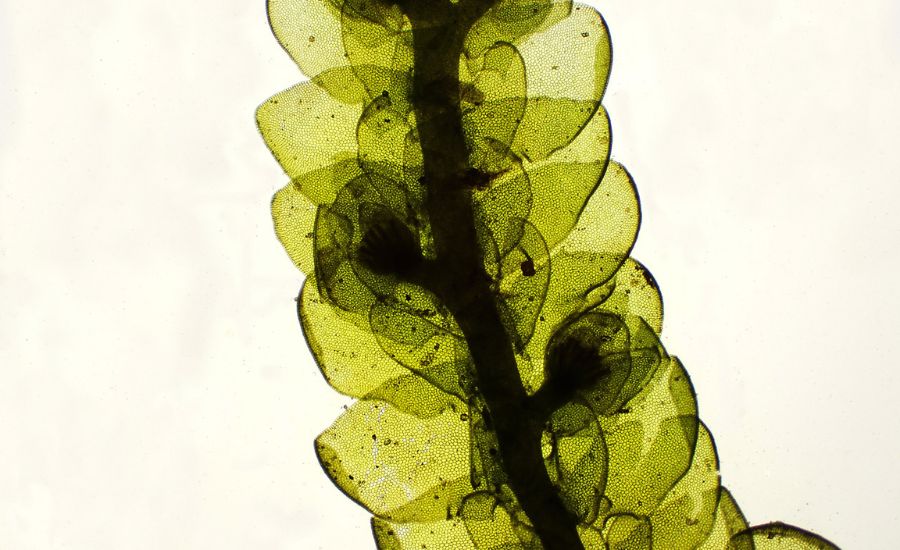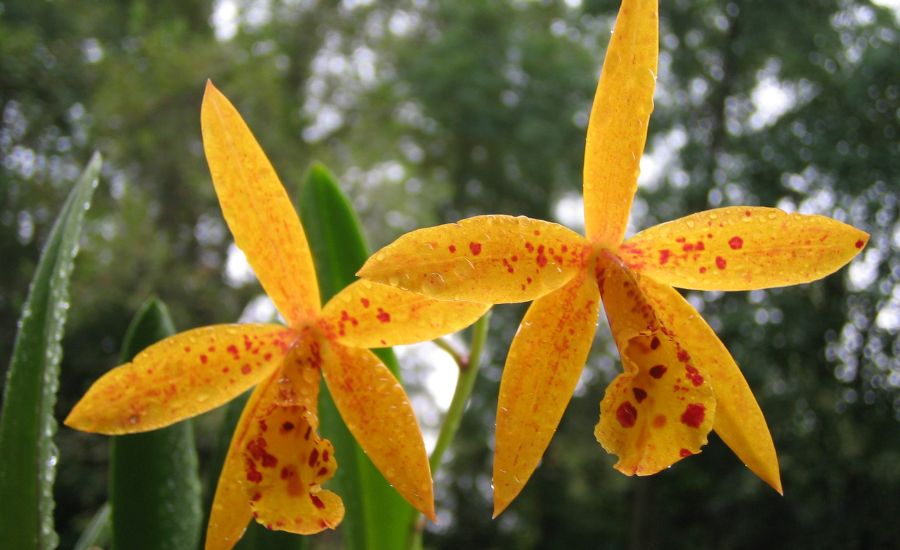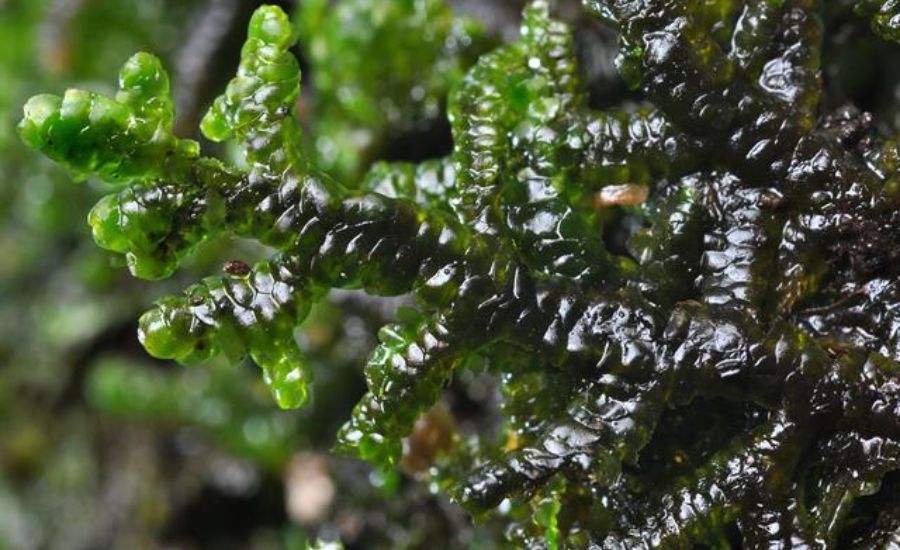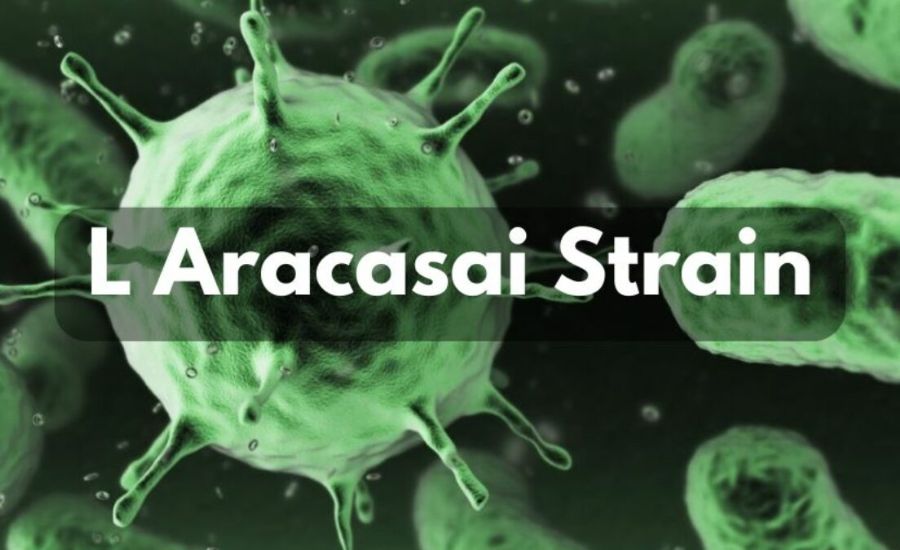Introduction
Potallaria is an emerging plant species that has garnered attention across multiple industries, including agriculture, herbal medicine, and sustainable products. Recognized for its impressive properties, this plant is being studied for its potential health benefits, nutritional value, and applications in various sectors. As the demand for natural alternatives and sustainable solutions continues to grow globally, Potallaria stands out as a versatile resource that could play a significant role in improving both environmental and human well-being.
In this article, we will explore Potallaria’s key characteristics, its potential health benefits, and how it is being utilized across different fields. Whether you are a gardener, health enthusiast, or someone interested in alternative products, understanding Potallaria’s wide-ranging uses can provide valuable insights into its growing importance.
What is Potallaria?
Potallaria is a plant species that is gaining recognition for its multifaceted benefits. While it may not yet be as well-known as other plants, it holds significant potential due to its natural advantages, making it a promising addition to various industries.
This hardy plant typically thrives in temperate climates, showing remarkable resilience to different soil types. Potallaria is known for its robust stems, large leaves, and strong growth patterns, which make it adaptable to both wild and cultivated environments. The plant produces seeds and flowers that serve as the key to its various applications, particularly in commercial and medicinal areas. These characteristics allow Potallaria to be a valuable resource in agricultural practices, herbal remedies, and sustainability efforts.
Origins of Potallaria
The exact origins of Potallaria remain somewhat ambiguous. While there is no definitive answer, several theories exist regarding its name and historical context. Some suggest that the term “Potallaria” may have roots in Latin or Romance languages, with meanings that relate to creation, space, or growth. Other interpretations propose that the name could reflect cultural or creative concepts, symbolizing a thematic expression tied to innovation or renewal.
Despite the uncertainty surrounding its origins, the name “Potallaria” has become associated with the plant’s versatile qualities and its growing significance in various sectors today. As the plant continues to gain recognition, its origins—both in terms of naming and cultivation—remain as intriguing as the plant itself.
Health Benefits of Potallaria

Potallaria’s potential health benefits have drawn significant attention in the field of herbal medicine. While more research is needed to fully understand its medicinal properties, early studies suggest that the plant may offer a range of benefits to human health. Here are some of the potential advantages of incorporating Potallaria into natural health practices:
- Antioxidant Properties
Potallaria contains compounds that may help neutralize harmful free radicals in the body. Antioxidants are vital for protecting cells from oxidative stress, which is linked to various chronic diseases, including cancer and heart disease. - Anti-inflammatory Effects
Certain components of Potallaria may have anti-inflammatory properties, making it useful for managing conditions like arthritis or other inflammatory disorders. Reducing inflammation in the body can alleviate pain and improve overall well-being. - Digestive Support
Potallaria has been suggested to support digestive health by promoting better gut function and alleviating digestive issues such as bloating or indigestion. Its potential role in improving gut health is one of the primary reasons why it is being explored as a dietary supplement. - Immune Boosting
Some studies have indicated that Potallaria may help strengthen the immune system, making it a valuable addition to a diet aimed at preventing infections and supporting overall health. Its potential to boost the immune response is one of the reasons it is being studied in the context of preventive health.
Agricultural and Industrial Applications of Potallaria
Apart from its medicinal benefits, Potallaria is also being recognized for its agricultural potential. Its hardiness and adaptability make it an excellent candidate for various farming practices. Here are some of the ways Potallaria is being used in agriculture and industry:
- Sustainable Farming
Potallaria’s ability to thrive in different soil conditions and climates makes it a valuable plant for sustainable farming practices. It requires minimal water and can grow in soil that might not be suitable for other crops. This resilience makes it an attractive option for farmers looking to diversify their crops and improve soil health. - Natural Pest Repellent
Potallaria’s natural compounds have been shown to have insect-repelling properties. This makes it an ideal candidate for use in integrated pest management systems, providing farmers with a natural way to protect their crops from pests without relying on harmful chemicals. - Soil Erosion Prevention
Due to its robust root system, Potallaria can be used to prevent soil erosion. By planting it in areas prone to erosion, the plant helps stabilize the soil, preventing the loss of valuable topsoil and promoting better land use. - Biofuel Production
Research is ongoing to explore the use of Potallaria in biofuel production. Its fast-growing nature and ability to thrive in less-than-ideal soil conditions make it a promising candidate for producing renewable energy. This could have significant implications for the bioenergy industry, offering a sustainable alternative to traditional fossil fuels.
Potallaria in Herbal Medicine
As a part of the herbal medicine industry, Potallaria is gaining attention for its potential therapeutic uses. It is being studied for its application in creating natural remedies for a variety of ailments, including:
- Stress Relief
Potallaria has been suggested to have mild sedative effects, which could be beneficial for those looking to manage stress or anxiety. Herbal teas or tinctures made from the plant might help promote relaxation and improve sleep quality. - Skin Health
The plant’s antioxidant and anti-inflammatory properties make it a valuable ingredient in skincare products. Potallaria extract is being used in some topical creams and lotions to help soothe irritated skin and reduce the appearance of redness or swelling. - Weight Management
Some proponents of Potallaria suggest that it can help regulate metabolism, which could contribute to weight management efforts. While more clinical studies are needed, Potallaria’s potential role in supporting a healthy metabolism makes it an intriguing option for those looking for natural ways to maintain a healthy weight.
Key Features of Potallaria

Potallaria is a versatile plant with several distinctive features that make it valuable across various sectors, from agriculture to herbal medicine. Below are some of the key attributes that highlight its potential:
1. Adaptability
Potallaria is known for its remarkable ability to thrive in a wide range of soil types and weather conditions. This adaptability allows it to be cultivated in regions with challenging growing environments, making it an excellent choice for farmers looking for resilient crops. Whether in dry, nutrient-poor soil or in regions with fluctuating weather patterns, Potallaria can maintain its growth, which makes it an increasingly popular option in sustainable agriculture.
2. Nutrient-Rich
The Potallaria plant is highly valued for its nutrient density. Antioxidants, vitamins, and minerals are abundant in its leaves, seeds, and flowers. These nutrients contribute significantly to the plant’s health benefits, offering everything from immune system support to promoting overall wellness. Potallaria’s rich nutritional profile makes it a valuable addition to diets, herbal remedies, and even skincare products.
3. Natural Pesticide
Potallaria contains natural compounds that have been shown to possess pesticidal properties. These compounds can protect crops from harmful insects and pests, making Potallaria an effective, eco-friendly alternative to synthetic pesticides. This natural pesticide function is especially beneficial for organic farming, where minimizing chemical use is a priority. By reducing reliance on harmful chemicals, Potallaria contributes to more sustainable and environmentally friendly farming practices.
4. Medicinal Value
For centuries, Potallaria has been used in traditional medicine for its wide-ranging therapeutic effects. The plant’s natural compounds, including anti-inflammatory, antimicrobial, and antioxidant agents, make it highly effective in a variety of health applications. From promoting immune health to alleviating digestive issues, Potallaria continues to be an essential herb in natural health practices. Its growing popularity among herbalists and natural remedy enthusiasts attests to its broad medicinal value.
The Health Benefits of Potallaria
Potallaria has been revered for its extensive health benefits, many of which are backed by both modern scientific research and centuries of traditional use. This plant is considered a powerful addition to a wellness routine, offering numerous positive effects for the body. Here are some of the key health benefits of Potallaria:
1. Anti-inflammatory Properties
One of the most significant benefits of Potallaria is its ability to reduce inflammation in the body. Chronic inflammation is a major contributing factor to many serious health conditions, including heart disease, arthritis, and autoimmune disorders. The compounds in Potallaria have been shown to lower inflammation, promoting overall health and helping to alleviate symptoms of inflammatory diseases. Regular consumption or topical application of Potallaria-based products may contribute to a reduction in inflammation, supporting long-term health.
2. Rich in Antioxidants
Potallaria is packed with antioxidants, which play a crucial role in protecting the body from oxidative stress. Cellular damage results from oxidative stress, which is caused by an imbalance between the body’s antioxidants and free radicals.This damage can contribute to aging and the development of chronic diseases, including cancer and cardiovascular disease. The antioxidants found in Potallaria help neutralize free radicals, thereby preventing cellular damage and promoting healthy aging. This antioxidant boost also contributes to better skin health and improved overall well-being.
3. Support for Immune Health
Another notable benefit of Potallaria is its ability to enhance the immune system. Potallaria is rich in essential vitamins, particularly vitamin C, which is well-known for its immune-boosting properties. Consuming Potallaria can help strengthen the body’s defense mechanisms, making it more effective at warding off infections and illnesses. Whether taken in supplement form or used as an herbal remedy, Potallaria supports immune health and provides additional resistance against colds, flu, and other common infections.
4. Digestive Health
Traditional medicine has long used Potallaria to promote digestive health. It is believed that the plant helps alleviate common digestive issues such as bloating, indigestion, and constipation. Potallaria’s natural compounds may help balance the gut microbiota, which is crucial for proper digestion and overall gastrointestinal health. By supporting gut function, Potallaria can contribute to a healthier digestive system and improve nutrient absorption, which is essential for overall wellness.
5. Antimicrobial and Antiviral Effects
Potallaria has demonstrated antimicrobial and antiviral properties, making it an effective natural remedy for fighting infections. Some studies suggest that Potallaria can combat common illnesses such as colds, flu, and even more severe infections. The plant’s natural compounds work to prevent bacterial growth and inhibit viral replication, helping the body combat infections more effectively. Potallaria’s antimicrobial properties have made it a popular choice in natural health circles for supporting the body’s ability to fight infections.
Potallaria in Agriculture
Beyond its health benefits, Potallaria plays an increasingly important role in sustainable agricultural practices. Its eco-friendly properties offer natural solutions to some of the challenges faced by modern farming. Here’s how Potallaria is transforming the agricultural landscape:
1. Natural Pesticide
Potallaria’s natural pesticidal properties make it an attractive option for reducing reliance on chemical pesticides. The plant contains compounds that are toxic to certain pests but safe for humans, animals, and beneficial insects like bees. By incorporating Potallaria into integrated pest management (IPM) systems, farmers can reduce their dependency on synthetic chemicals. This not only benefits the environment by preventing soil and water contamination, but also supports healthier ecosystems, promoting biodiversity and improving the sustainability of farming practices.
2. Soil Fertility Enhancement
One of Potallaria’s most valuable features is its ability to improve soil fertility. The roots of Potallaria are known to fix nitrogen in the soil, a process that enriches the earth with this essential nutrient. Nitrogen is crucial for plant growth, and by enriching the soil naturally, Potallaria reduces the need for synthetic fertilizers. This ability makes Potallaria an ideal companion plant in crop rotation systems, where it helps to restore nutrients to the soil after growing nitrogen-depleting crops. This reduces input costs for farmers and ensures the long-term health of the soil.
3. Crop Protection
In addition to its pesticidal effects, Potallaria can enhance the resistance of neighboring crops to pests and diseases. When planted alongside other crops, Potallaria acts as a natural barrier, helping to protect these crops from a range of common pests. Furthermore, the plant’s natural compounds are thought to stimulate plant immunity, improving overall crop health and increasing yields. This makes Potallaria a valuable addition to any agricultural system, particularly in organic farming where chemical inputs are restricted.
Potallaria in Herbal Medicine
Potallaria has a long history of use in traditional herbal medicine, with numerous health benefits that continue to be recognized today. From teas and tinctures to topical creams and supplements, Potallaria is valued for its wide range of medicinal properties. Here are some of the most prominent uses of Potallaria in herbal medicine:
1. Tea for Inflammation Relief
Potallaria has gained popularity as a natural remedy for inflammatory conditions. Potallaria tea, made from the leaves or flowers of the plant, is traditionally used to treat arthritis, muscle aches, and joint pain. The anti-inflammatory compounds found in Potallaria help to reduce swelling and discomfort, offering a natural alternative to pharmaceutical anti-inflammatory drugs. Regular consumption of Potallaria tea can promote joint health, ease muscle soreness, and provide overall relief for inflammatory conditions.
2. Topical Applications for Skin Health
Potallaria’s extracts are widely used in skincare products due to their antimicrobial and anti-inflammatory properties. The plant’s powerful antioxidants help to fight free radicals, which can cause skin damage and accelerate aging. Potallaria’s natural compounds also soothe irritated skin, making it beneficial for conditions like acne, eczema, and psoriasis. By applying Potallaria-based topical treatments, individuals can experience healthier, clearer skin and benefit from its calming effects on inflamed or damaged tissue.
3. Respiratory Health
Potallaria has long been used in traditional herbal medicine to support respiratory health. The plant is believed to have expectorant properties, helping to loosen mucus and clear the airways. Potallaria-based remedies are commonly used to treat respiratory ailments such as colds, coughs, bronchitis, and asthma. By soothing the throat and reducing congestion, Potallaria can help alleviate the discomfort of respiratory conditions. Its antimicrobial properties also aid in fighting off infections that often accompany respiratory illnesses, making it a valuable herb for improving lung health and breathing.
The Environmental Benefits of Potallaria
In addition to its advantages in agriculture and herbal medicine, Potallaria is gaining recognition for its positive environmental impact. This versatile plant offers several environmental benefits, contributing to sustainability and promoting healthier ecosystems. Below are some of the key environmental advantages of cultivating Potallaria:
1. Sustainability in Agriculture
Potallaria is a fast-growing plant that requires minimal resources for cultivation. Unlike many industrial crops that are heavily dependent on synthetic fertilizers, pesticides, and large amounts of water, Potallaria thrives in diverse conditions with little need for these inputs. This characteristic makes it a more sustainable crop option for farmers, as it helps reduce the environmental footprint of agricultural practices. By growing Potallaria, farmers can contribute to more sustainable food production, lowering the demand for harmful chemicals and excessive water usage, which can otherwise deplete local ecosystems.
2. Carbon Sequestration
As with many plant species, Potallaria absorbs carbon dioxide from the atmosphere during photosynthesis. This process plays a crucial role in reducing the amount of greenhouse gases in the atmosphere, which is essential for mitigating climate change. Potallaria’s ability to thrive in a range of environments, from temperate regions to more challenging growing conditions, makes it an excellent candidate for afforestation and reforestation efforts. By incorporating Potallaria into these projects, its carbon sequestration potential could support larger global efforts to combat the effects of climate change.
3. Support for Biodiversity
Integrating Potallaria into both agricultural systems and natural ecosystems can significantly enhance biodiversity. The plant serves as a vital resource for pollinators and beneficial insects, offering both food and shelter. This can help support the health of surrounding ecosystems, promoting a balanced environment. By fostering a diverse range of species, Potallaria can help improve soil health and the resilience of natural habitats, ultimately leading to more stable and productive ecosystems.
Challenges and Considerations
While Potallaria offers impressive environmental benefits, it is important to consider certain challenges when incorporating it into various environments or farming systems. Below are some of the key considerations:
1. Invasive Potential
In certain regions, Potallaria may exhibit invasive tendencies if it is not carefully managed. Like many fast-growing plants, Potallaria has the potential to spread rapidly, outcompeting native species and disrupting local ecosystems. This risk underscores the importance of monitoring its growth, particularly in areas where it could become invasive. By implementing proper management strategies, such as controlled planting and regular monitoring, the risks associated with its invasiveness can be mitigated, ensuring that Potallaria’s positive environmental impact is maximized without harming native flora and fauna.
2. Sustainable Harvesting Practices
To ensure that Potallaria continues to provide its environmental and medicinal benefits, proper harvesting and processing methods must be followed. Overharvesting or improper handling of the plant can diminish its potency and reduce its environmental value. This is particularly true for its use in herbal medicine, where maintaining the quality and effectiveness of Potallaria extracts is essential. By adhering to sustainable harvesting guidelines and processing methods, the long-term availability of Potallaria can be ensured, allowing it to continue contributing positively to both human health and the environment.
Conclusion: The Growing Significance of Potallaria
Potallaria is quickly gaining recognition as a versatile and valuable resource across various fields, including agriculture, herbal medicine, and sustainable development. Its impressive array of properties, from health benefits to agricultural applications, makes it a plant to watch in the coming years. Whether for its antioxidant qualities, its potential role in natural pest control, or its promise in renewable energy production, Potallaria is showing great promise in addressing some of the most pressing issues faced by modern society.
As more research continues into Potallaria’s uses and benefits, it is likely that this plant will become an even more integral part of our lives, offering solutions that are both environmentally friendly and health-conscious. Whether you are interested in cultivating it in your garden or exploring its medicinal properties, Potallaria has the potential to be a game-changer in how we approach both wellness and sustainability.
Frequently Asked Questions (FAQs)
1. What is Potallaria?
Potallaria is a versatile plant known for its numerous health benefits, agricultural value, and positive environmental impact. It is particularly praised for its natural pesticidal properties, rich nutrient content, and sustainability in farming practices.
2. What are the main benefits of Potallaria?
Potallaria offers several health benefits, including anti-inflammatory, antioxidant, antimicrobial, and digestive health properties. It is also valued for its ability to support the immune system and promote skin health. Additionally, Potallaria is an eco-friendly option in agriculture, acting as a natural pesticide and improving soil fertility.
3. How does Potallaria help in agriculture?
In agriculture, Potallaria is used as a natural pesticide, reducing the need for harmful chemicals. It also enhances soil fertility through nitrogen fixation and can improve crop health and yields when grown alongside other plants. Its sustainability and minimal resource requirements make it a valuable addition to organic farming systems.
4. Can Potallaria be used in herbal medicine?
Yes, Potallaria has a long history of use in herbal medicine. It is commonly used to make teas, tinctures, and supplements to relieve inflammation, treat skin conditions, and support respiratory health. Its antimicrobial properties also make it useful for fighting infections.
5. What environmental benefits does Potallaria provide?
Potallaria contributes to environmental sustainability by being a fast-growing, low-resource plant. It helps reduce carbon emissions through carbon sequestration, supports biodiversity by providing food and shelter for beneficial insects, and can be cultivated with minimal water, fertilizers, and pesticides.
6. Are there any challenges in using Potallaria?
While Potallaria offers many benefits, it may become invasive in certain areas if not carefully managed. Its rapid growth can potentially outcompete native plants. Additionally, sustainable harvesting practices are necessary to preserve its medicinal potency and environmental contributions.
Interesting Facts about Potallaria
- Nutrient-Rich: Potallaria is packed with essential nutrients like antioxidants, vitamins, and minerals, making it highly beneficial for overall health.
- Natural Pest Control: Unlike synthetic pesticides, Potallaria provides a natural solution to protect crops from pests without harming the environment or human health.
- Adaptable Growth: Potallaria can thrive in a variety of soil types and weather conditions, making it suitable for cultivation in diverse environments.
- Carbon Sequestration: Like many plants, Potallaria helps absorb carbon dioxide during photosynthesis, contributing to the reduction of greenhouse gases in the atmosphere.
- Medicinal Uses: Potallaria has been used for centuries in traditional medicine to treat inflammation, digestive issues, skin problems, and respiratory conditions.
- Companion Plant: When grown alongside other crops, Potallaria can help improve plant health, reduce disease, and increase overall yields.
- Eco-Friendly Farming: Potallaria’s minimal need for synthetic inputs like fertilizers and pesticides makes it an eco-friendly option for sustainable agriculture.
- Biodiversity Support: The plant provides food and shelter for pollinators and beneficial insects, enhancing the biodiversity of agricultural and natural ecosystems.
- Inflammation Relief: Potallaria is particularly known for its anti-inflammatory properties, helping to alleviate conditions like arthritis, muscle aches, and joint pain.
- Topical Skin Benefits: Potallaria extracts are often used in skincare products for their ability to treat acne, eczema, and other skin conditions.
For more Information About Virous visit bloghives

